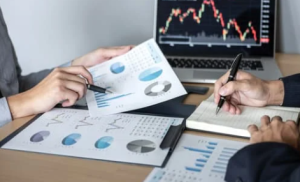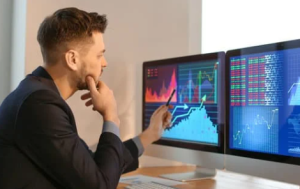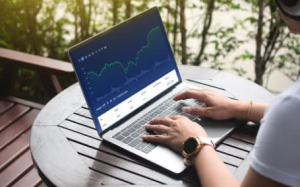
10 Essential Forex Trading Tips for Beginners – Maximize Your Success in the Forex Market
Forex trading is an exhilarating journey that promises potential profits but carries the risk of significant losses. As you embark on your voyage in the world of currencies, acquiring knowledge is your most powerful tool. For example, a free forex trading course can be an invaluable resource to grasp the basics.
While it’s not directly related to forex, you can also glean insights from diverse fields. For instance, understanding strategies used in games of chance, such as online slots, can help sharpen your decision-making skills. Here, you can find some effective tips and tricks that might give you a unique perspective on handling hidden risks and rewards.
10 Essential Forex Trading Tips for Beginners
1. Begin with a Forex Trading Plan

Think of a forex trading plan as your roadmap in the world of currency trading. This plan is a well-thought-out method that assists you in making smart choices and managing potential risks. It includes your monetary goals, the level of risk you’re comfortable with, and the distinct tactics you’ll employ.
Just like a lighthouse guiding ships through stormy waters, this plan will guide you through the complexities of forex trading. It will keep you on track and ensure you stay consistent in your decisions. Plus, it gives you a way to track your progress and make necessary adjustments to improve as you go along.
2. Familiarize Yourself with the Forex Market
Before you jump into trading, understanding the forex market’s inner workings is crucial. Learn the jargon, including terms like ‘pips’, ‘lots’, and ‘leverage’. Understand how currency values are presented and what can make these values shift. Think of the forex market as a bustling global bazaar where all currencies are exchanged – it’s the largest and busiest market on the planet. It never sleeps from Monday to Friday, providing numerous opportunities to make trades.
3. Pick a Suitable Broker

Choosing the right forex broker can make a big difference in your trading journey. You should find a broker with a good reputation, who operates under regulatory rules, and who provides a trading platform that fits your style. Make sure the broker offers great customer service, fair spreads (the difference between buying and selling prices), and an easy-to-use platform. Also, it’s critical that they follow regulatory guidelines to keep your money safe.
4. Use Leverage Wisely
Leverage can amplify your profits, but it can also magnify your losses. It’s crucial to understand the risks associated with leverage and to use it judiciously. Leverage in forex trading is a tool that allows traders to control larger market positions with a smaller initial deposit. While it can be a powerful tool, misuse or overuse of leverage can lead to significant losses, exceeding your initial investment.
5. Analyze the Market

Market analysis is a key aspect of successful forex trading. It involves examining economic, political, and social factors that could influence currency prices. There are two main types of analysis – fundamental and technical. Fundamental analysis involves evaluating a country’s economic indicators and monetary policy to predict currency movements. On the other hand, technical analysis involves studying price patterns and statistical trends using historical price charts and indicators.
6. Implement Risk Management
Risk management is essential in forex trading. It involves setting stop-loss orders to limit potential losses, diversifying your portfolio, and not investing more than you can afford to lose. Risk management strategies protect you from severe losses and help ensure the longevity of your trading account. Remember, the aim is not to win every trade but to remain profitable over a series of trades.
7. Keep Emotions in Check

Emotions can significantly impact your trading decisions. Try to remain objective and avoid impulsive decisions based on fear or greed. Successful trading requires discipline, patience, and the ability to manage emotions. Whether you’re riding a winning streak or facing a series of losses, staying grounded and sticking to your trading plan is important.
8. Continue Learning
The forex market is dynamic and constantly changing. It’s important to continue learning and adapting your strategies to stay ahead. Stay informed about global events, economic news, and market trends. Engage in ongoing education by reading books, attending webinars, or enrolling in advanced forex courses. Remember, in the world of forex trading, knowledge is power.
9. Practice with a Demo Account

Before you start live trading, consider practising with a demo account. A demo account allows you to trade with virtual money, offering a risk-free environment to understand the mechanics of the forex market, try out your trading strategies, and learn from your mistakes without the fear of losing real money.
10. Treat Forex Trading as a Business
Last but not least, treat forex trading as a business. This means being prepared for losses, having a clear strategy, and sticking to it. As a trader, you are essentially a small business owner and must approach your trading with the same level of seriousness and professionalism. This perspective can help you stay focused and committed, increasing your chances of success in the long run.
Forex trading is a challenging but potentially rewarding endeavour. Following these tips and constantly honing your trading skills can maximize your success in the forex market. Remember, the journey to becoming a successful forex trader is not a sprint but a marathon. Patience, persistence, and perseverance are key to success in this exciting world of forex trading.





